We work with lots of families who come in to buy their very first piano. It’s an exciting process — but it can also be overwhelming learning how to buy a piano you’ll love!
So here’s an overview of the main decisions you’ll have to make, and the most common concerns customers bring up.
If you follow these tips — and avoid these pitfalls — you’ll have a much better time when buying your first piano!
DO Consider What You Want & Need
There’s no one piano that’s perfect for everyone. That’s why reason why we carry over 200 instruments, with price tags between $150 and $50,000.
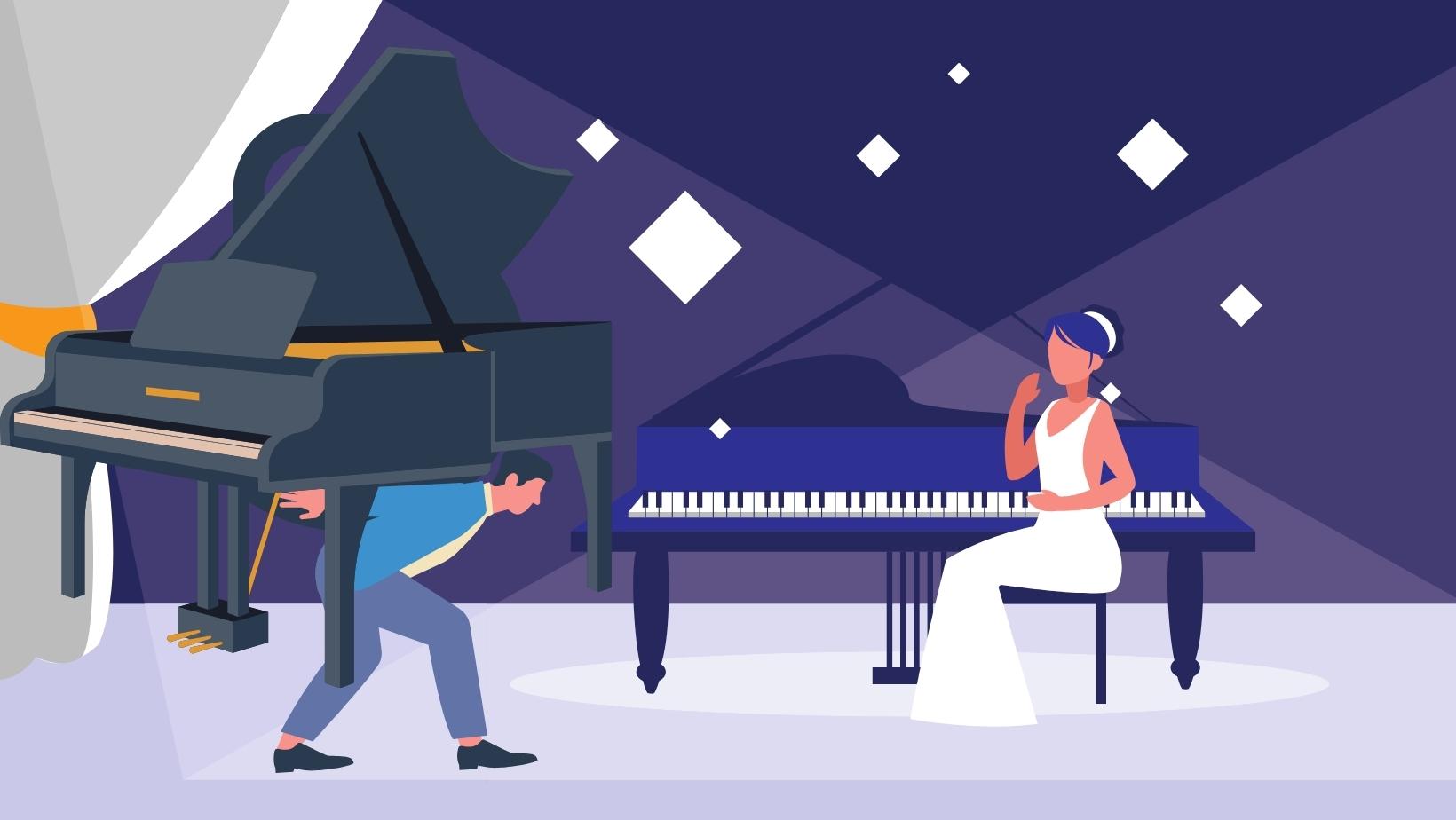
A giant grand piano would be a real pain in the butt to bring to a class or recital! Conversely, you couldn't get through more than about a measure or two of a Liszt piece on a 61-key toy keyboard.
We’ll also mention this: the line between “need” and “want” is often blurry. Do you need your piano to have a Satin Mahogany finish? Probably not. But if you’re spending a bunch of money on a piano, you’ll probably want it to match the interior of your home!
Rather than trying to categorize “wants” vs “needs,” we encourage you to simply consider some different factors so you can narrow many options down to a few. After making these five decisions, you’ll be able to better understand what kind of piano will be a great fit for you now and in the future.
Deciding on Type of Piano
Acoustic or digital? Upright or grand? New or used?
Each can have pros and cons depending on your situation, and only you can decide which is the best fit for your home.
To put it as simply as possible, here are a few quick pros/cons from those three broad categories:
|
Acoustic
|
+ Objectively better feel and sound than a digital
|
+ Will last longer than a digital
|
— Can only ever be a piano
|
— Will need to tune yearly and maintain
|
|
Digital
|
+ Much less expensive than an acoustic piano
|
+ Many decent options these days, especially for beginner’s
|
+ Variety of features to improve experience and utility
|
— Technology advancing rapidly means resale value won’t hold
|
|
Upright
|
+ Take up less space and easier to fit in a room than a grand
|
+ Still an acoustic piano with an at-worst decent playability
|
— Spinet and antique upright options that fit this category but not as desirable and can be confusing
|
— Won’t play as well as a grand piano and literally was created as a compromise
|
|
Grand
|
+ Gold standard for pianos period: best sound and feel
|
+ Beautiful and elegant appearance that compliments any setting
|
— Take up a lot of room and simply not practical for some living situations
|
— Most expensive option for pianos
|
|
New
|
+ Guaranteed to play well thanks to fresh parts
|
+ Usually includes a manufacturer’s warranty
|
+ Will last longer than similar used or refurbished options
|
— More expensive than used or refurbished options
|
|
Used
|
+ Much more affordable option than new
|
— Warranty usually less desirable than in a new instrument
|
— Quality more questionable depending on seller
|
We’re using the word “used,” but we actually mean refurbished pianos that have previously owned but brought back up to speed by technicians. You wouldn’t buy a used car without taking it to a mechanic, would you?
Can’t decide between acoustic or digital? Consider a hybrid piano! Something like the K300 AURES 2 Hybrid Upright Piano allows you the performance of an acoustic with the features of a digital. Best of both worlds!
Consider the Quality Level
We don’t usually categorize quality so objectively.
But we do think it’s helpful for people considering what they need from their piano technically. After all, you want to know how to buy a piano that’s good for your needs!
So here are a few levels that articulate different levels of piano quality:
- Christmas Caroler – You just need to pound out some notes. As long as it sounds vaguely piano-like, and most of the keys function, you can play Jingle Bells for Grandma when she visits for the holidays.
- Budding Student – You’re wanting to start lessons and take piano somewhat seriously. You need the piano in tune, otherwise you’re training your ears incorrectly. And for the action, you need some level of control, so you can play both soft and loud more accurately.
- Everyday Player – You definitely like playing piano, and you do it often. At this point, you’ll probably be able to hear difference in sound quality between instruments and even have some preferences. Similarly, with the action, you’ll find some more enjoyable to play than others. This is the stage when you can a piano made for you.
- Advanced Pianist – You want to evoke a range of emotions when playing. You’ll want an instrument with flawless sound that grants exacting control. Anything less will probably be frustrating in achieving nuanced technique. Lower-end instruments will definitely be out of the question if you’re performing more and more high-level pieces.
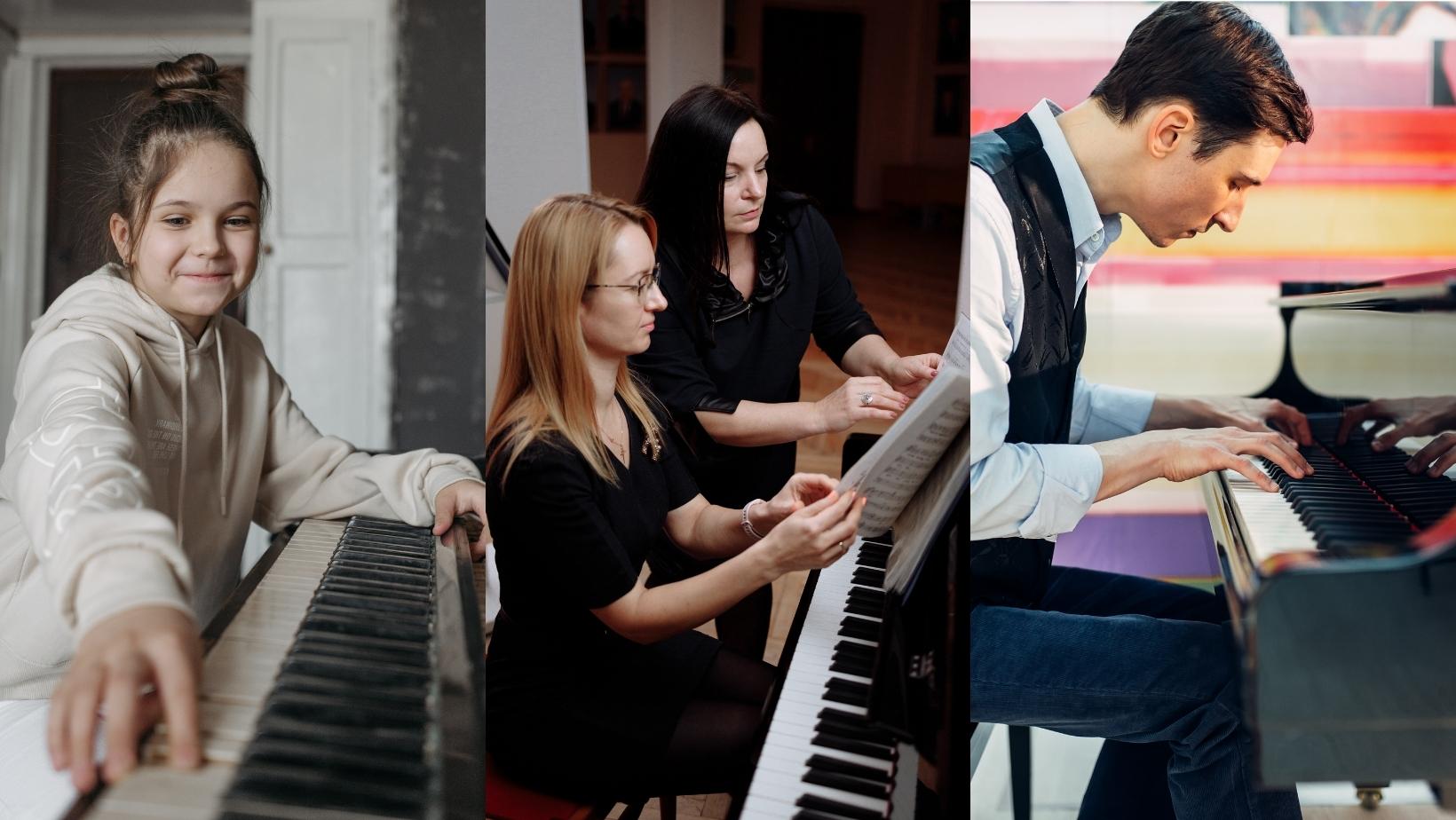
If you're just poking around on a piano for fun, you probably don't need the best instrument possible. But if you're taking lessons or performing, you definitely want a piano that can handle more complex playing!
By the way, we’re not suggesting that you need to limit yourself to a lower-level instrument if you’re just starting off! In fact, getting an “Advanced Pianist” piano on Day 1 means that your entire piano learning journey can happen on the most enjoyable piano possible — with no need for trading up later!
Setting a Budget
Deciding how much to spend is a big part of buying a piano, and one that’s especially hard as a beginner. You don’t want to spend too much. . . . but you shouldn’t spend too little either.
You should know that all new digital pianos pianos usually abide by manufacturer advertised price (MAP). For sellers like us, this means we can’t advertise the price online for less than what the manufacturer says is okay. For buyers like you, it means there’s no need to shop around for price since (in a competitive market) you’re almost always guaranteed the lowest price.
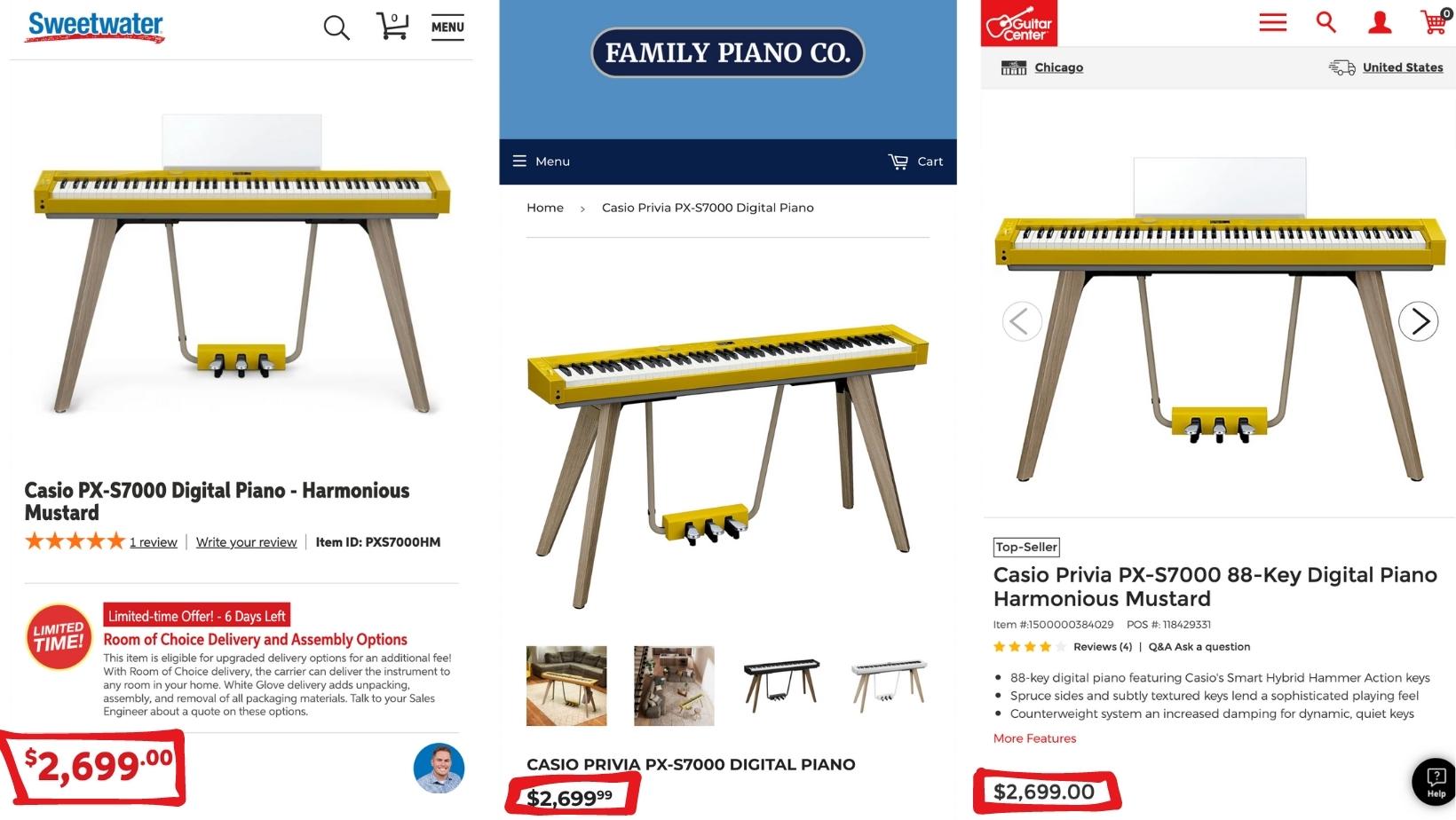
As you can see, all three prices of the Casio PX-S7000 Digital Piano are set at $2,699! As authorized dealers, we're not allowed to drop them lower than this price (referred to as MAP).
For acoustic pianos, a “good” price is much more subjective. There’s such a huge variety of brands, models, finishes, and years of manufacture — it’s hard to describe how much a piano costs. Like any other product that’s sold, there are costs for manufacturing it, advertising it, and selling it.
So there’s no set rule for deciding what a good budget is for a good piano. That’s going to depend on what you can afford and what quality level you need out of your instrument.
In any case, we recommend comparing prices locally first. Different piano stores will have different pricing structures of their own so you may want to visit a few. Don’t be afraid to ask questions about value either! Any salesperson worth their salt should be able to justify the price of what they’re selling.
DON’T Get the Cheapest Piano You Can
It’s good practice to get the best piano you can responsibly afford.
You don’t need to go into debt for an instrument, but you want to get something you’re going to love for a long time. They can last decades and lifetimes, and they’re investments that’ll improve your life significantly!
So yes, we’re a little biased in saying this, but we strongly recommend you buy a piano from a piano store. Or at the very least, just visit one so you can learn what you should look for.
The two alternatives to this we see the most are:
1) Buying a Simple Keyboard
When we say “keyboards” we tend to mean unweighted plastic-with-spring actions, usually with fewer than 88 keys. These are not bad instruments. But they are bad pianos. They’re usually in the >$200 range so we understand why they’re desirable, but you are going to have a frustrating time learning to play piano on them. They’re great for portability or music theory or playing around with sounds, but they lack the nuanced feel to develop any technique that’ll translate onto an actual piano.
2) Getting a Free Piano
You can find “free pianos” on Facebook Marketplace, Craigslist, OfferUp, etc. Usually, people just want to get rid of them so they’ll offer the piano free as long as you pay for the $350+ move. As a beginner, we don’t advise going this route since you won’t know what to look for. While finding a decent free piano isn’t unheard of, it’s not the majority of cases. And you don’t want to be the one stuck with a crappy piano that costs too much to repair and/or move.
Considering a free piano anyway? We don’t blame you. But do read our post on why a free piano isn’t always free for the relevant information you’ll need!
While we certainly understand wanting to learn for the least amount of money, these aren’t great options. For us, it’s even frustrating seeing people get instruments they don’t end up playing. Bad pianos do exist, and they can ruin the chance of musical success!
DO Gather Enough Info Before Buying
Let’s start off by saying this: you don’t need to know absolutely everything about pianos to find a piano you’ll love. Decision fatigue is a thing, and it can lead to poorer decision-making in the end.
Still, we do recommend understanding the basics of how a piano works and what kinds are available. Additionally, you should consider your own tastes as far as feel and sound.
It is hard to know what you like and don’t like if you don’t play piano. Since taste is subjective, there is no right or wrong answer either! However, that’s not very helpful advice so here’s what we recommend for some guidance:
1) Ask a teacher or musician or salesperson for their opinion. As pianists themselves, they can tell you their experiences which will help you for a baseline for an opinion. Be careful not to take their opinions to heart since they too will have different tastes. But they may get you to consider things you otherwise wouldn’t have.
2) Get something middle-of-the-road in terms of feel. Not too heavy and not too light. You may not know what that means exactly right now, but the weight has to do with how much pressure it takes to depress a key. The benefit of something in the middle is that technicians can usually make adjustments to tip the weight one way or the other.
3) Think about the kind of music you’d like to play to decide on sound. If you’re into ragtime, you’ll love bright. If you’re into jazz, you might want something warmer. Again, I may recommend getting something “versatile” since a technician can voice your piano to alter exact sound. Also important to mention that sound treating a room can help a ton too.
4) Consider everything. When a customer comes into our store, like to give a complete tour to explain the differences between different kinds of pianos, brands, actions, etc. If someone really loved an option along the way, the search is finished. Otherwise, we can go back to explore more pianos within categories they like the best. Going in open-minded and considering a bunch of different categories helps give you the proper context to make a good decision. And you also get to play more pianos!
Do be careful where you get your information from too!
You have to realize everyone has different preferences and objectives. Even right now, after reading this blog post from us as a piano store, I do encourage you to read a similar one from a different source.
Doing your own research and asking for help are important, but make sure the opinions you end up with are your own.
We especially stress this point in the context of brand names too. We sometimes get calls from people who only want a Steinway or only want a Yamaha. But when we ask why, they can’t really answer, or they’ll just say it’s what was recommended.
We won’t get too deep into branding here, but you do pay for the name on the fallboard. It’s sometimes to cover the superior quality, and other times it’s to cover the extra marketing expenses.
Especially as a beginner, try not to fall into the trap of branding and just focus on a high-quality piano you like.
We like Steinways, but they spend a lot on marketing — and consumers get the bill! Read our blog comparing Kawai vs Steinway for more info on the topic of brand.
DON’T Forget to Find a Technician
One of the most commonly asked requests we get is “can you service my digital piano?” And yes, Paul would be happy to — but only if you’re in Chicagoland. We get calls and chats from as far as the UK to ask us. We’d probably have to charge them quite the distance surcharge to make that work. . . .
So when you’re buying a piano, digital or acoustic or anything in between, make sure you have a technician that can service it. You don’t want to find out you have to buy a new piano once yours needs a fix. And fixing it yourself is usually not an option we recommend either.
If it’s new, make sure you can actually take advantage of the manufacturer’s warranty. Most manufacturers have an authorized service network so you can find a local repair guy. If your closest option is 100mi away, you should ask the dealer what they recommend doing or maybe consider a different brand entirely. An established brand may also be a better bet since you want them to be around for decades to come.
Obviously you also have to consider the cost of maintenance too. Instruments do wear out over time, and you should be adding the cost of owning an instrument long-term to its overall price.
For acoustic pianos, we recommend at least a yearly tuning. They will last longer if you do this, and having a good relationship with a technician is beneficial to you. And although digital technicians can be harder to find, a benefit of digitals it that they’ll require fewer repairs in their lifetime.
So before buying a piano, get in contact with local techs and ask for their rates to get an idea of cost. And if you buy an acoustic piano, get in the habit of asking technicians for evaluations during tunings so you can figure out how to keep your playing experience optimized.
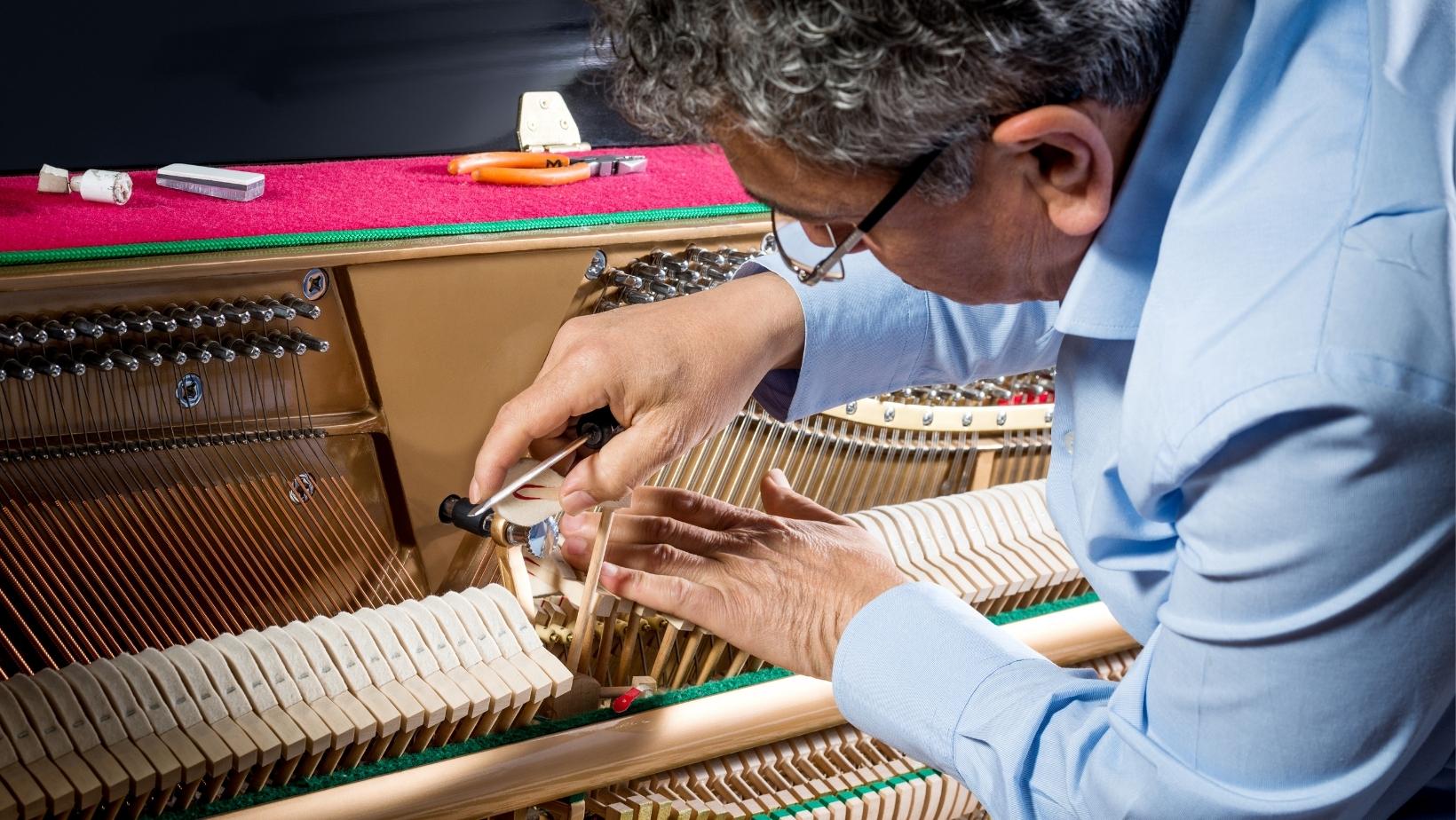
Piano maintenance isn’t as tough as you may think! Read our guide on how to take care of your piano.
DO Get to Playing Soon
With something as subjective as music and sound — a “perfect” decision doesn’t really exist. And even if it did, your needs and tastes may be different in a few years anyway.
So in our opinion, you’re better off making a “good enough” decision, and getting started as soon as you can.
We’ve had customers stall deals for years while they figure out what they want vs what they need, if they should do acoustic or digital, how much they can spend, etc. And it’s not that you shouldn’t pay these questions any mind — this blog post is encouraging you to ask those questions — but you shouldn’t overanalyze every small detail.
We’ll also mention that even though we recommend buying a nicer piano to keep for life, we say that as people who know pianos. As a beginner, you probably aren’t going to want such a high level of commitment off the bat. And trying to learn everything piano so that you can make a decision for your current and future self — it just isn’t reasonable.
Geeking out about gear is fun, and we ourselves really enjoy it too. But it’s important to keep in mind that it’s just gear. A nicer instrument won’t make you a better player! Remember to stay focused on the music, and on enjoying the process of learning to play piano.
Where to Buy a Piano? Try a Piano Store!
While we’re biased, the best thing you can do in buying your first piano is to go to a reputable store that allows trade-ins (or even buy-backs), and has a bunch of options for you to try.
Especially if you’re a complete beginner, buying from a piano store will ensure you have enough information to make an informed decision, you have a resource you can always turn to for help, and you can potentially return the instrument if something goes awry.
Everyone’s situation is different. Whatever kind of piano you get, wherever you get it from, whatever you know about music — none of it really matters in the end. We think any piano is capable of becoming a cherished part of the family, and ultimately, the best piano to buy is the one you love to play.

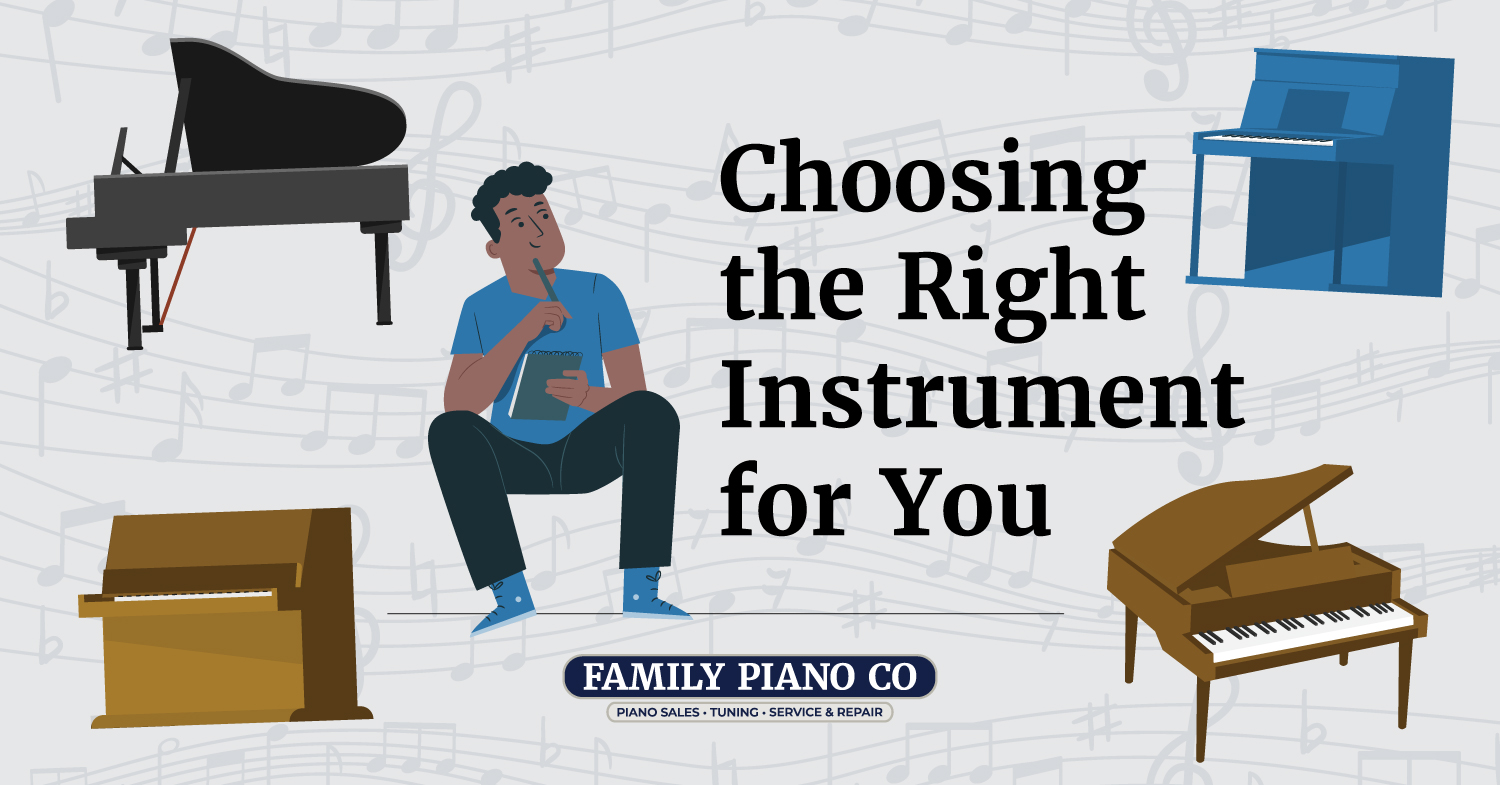
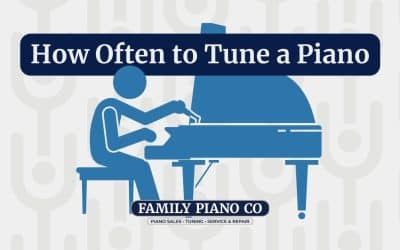
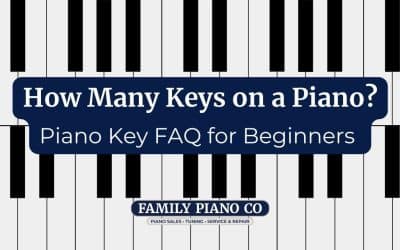
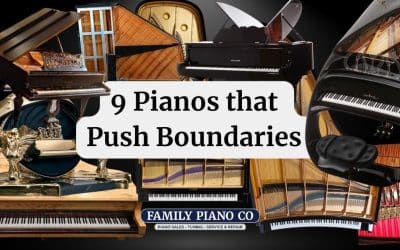
Great article, just what I wanted to find.
Glad you liked it!